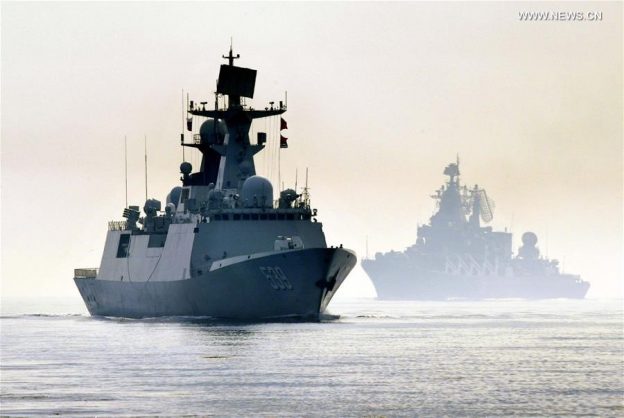The New York Analysis of Policy and Government concludes its presentation of the U.S. Department of Defenses’ report on threats in the Indo-Pacific region.
BURDEN SHARING
America’s National Security Strategy calls on the United States to pursue cooperation and reciprocity together with our allies, partners, and aspiring partners. Cooperation means sharing responsibilities and burdens. The United States expects our allies and partners to shoulder a fair share of the burden of responsibility to protect against common threats. When we pool resources and share responsibility for our common defense, our security burden becomes lighter and more cost-effective.
THE STATE PARTNERSHIP PROGRAM IN THE INDO-PACIFIC
The State Partnership Program began in 1993 with partnerships between the National Guard of designated U.S. States and newly independent Eastern European countries.
The State Partnership Program has since expanded to other regions, including the Middle East, Africa, Latin America, Western Europe, and the Indo-Pacific. By the end of FY 2019, the United States will have 79 partnerships with 86 nations, 12 of which are in the Indo-Pacific:
- Bangladesh / Oregon (2008)
- Cambodia / Idaho (2009)
- Indonesia / Hawaii (2006)
- Malaysia / Washington (2017)
- Mongolia / Alaska (2003)
- Philippines / Hawaii, Guam (2000)
- Thailand / Washington (2002)
- Tonga and Fiji / Nevada (2014 & 2018)
- Vietnam / Oregon (2012)
- Recently Added: Nepal (2019) 4Sri Lanka
UPHOLDING FREEDOM AND ACCESS TO GLOBAL COMMONS
Throughout our history, the United States has asserted a key national interest in preserving the freedom of the seas, and has often relied on the U.S. military forces to protect that interest. As President Ronald Reagan said in releasing the U.S. Oceans Policy in 1983, “we will not acquiesce in unilateral actions of other states designed to restrict the rights and freedoms of the international community in navigation and overflight.”
Today, in places like the South China Sea, excessive maritime claims are attempts by coastal States to unlawfully restrict the exercise of freedoms afforded to all seafaring nations to operate in waters beyond territorial limits. The United States will continue to fly, sail, and operate wherever international law allows, and encourage our allies and partners to do the same.
Excessive maritime claims inconsistent with international law, if left unchallenged, threaten the international rulesbased order and U.S. interests and those of our regional allies and partners. Freedom of the seas is essential to ensuring the global mobility of U.S. forces in the event of a crisis and the worldwide security of civilian shipping on a daily basis.
DoD, therefore, is committed to ensuring free and open maritime access, including through freedom of navigation (FON) assertions (commonly called Freedom of Navigation Operations, or FONOPs), to protect the stable economic order and to maintain the ability of U.S. forces to respond, as needed. U.S. forces routinely challenge excessive maritime claims asserted by allies and partners, as well as those made by potential adversaries and competitors.
Conclusion
For more than 70 years the United States, along with our like-minded allies and partners, has helped underwrite a stable security environment that allowed the people, economies, and nations in the Indo-Pacific to rise and prosper. Our vision for a free and open Indo-Pacific encompasses values shared by our allies and partners in the region – one that emphasizes upholding a foundation of mutual respect, responsibility, transparency, and accountability.
As great power competition returns, we will continue to invest, act, and orient ourselves to ensure that the principled international order from which all countries in the region benefit endures.
The United States will uphold our commitments and will act to defend our interests and those of our allies and partners.
The United States, along with our like-minded allies and partners, will continue to be engaged in this dynamic and rapidly growing region. The Department of Defense, in conjunction with other U.S. Government Departments and Agencies, regional institutions, and regional allies and partners, will continue to ensure that the rule of law – not coercion and force – dictates the future of the IndoPacific.
Photo taken on May 4, 2019 shows Chinese naval forces participating the “Joint Sea-2019” exercise. A six-day joint naval exercise held by Chinese and Russian navies .in Qingdao, east China’s Shandong Province. Two submarines, 13 surface ships, as well as fixed-wing airplanes, helicopters and marines participated in the exercise. (Xinhua/Li Ziheng)
